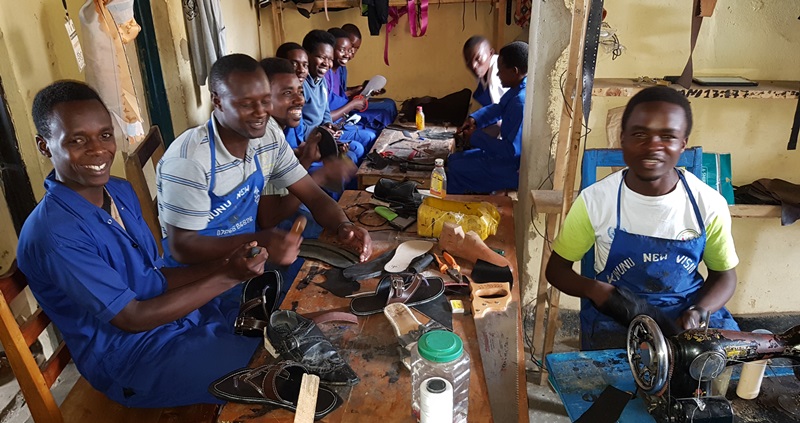
The Government of Rwanda has fixed objective to create 214,000 new jobs each year to reach its targets of Vision 2020 to shift Rwanda from low to middle income countries by 2020. The empowerment program aims at local economic development (LED) for beneficiaries via integral approach made of two complementary programs enabled by capacity development, awareness and mobilization of youth and women who are the primary target beneficiaries of the program.
The Local Economic Development “LED” and Economic empowerment
The LED is a process which seeks to unlock opportunities at local level by exploiting local potentialities and transformed them into livelihoods and business activities. Value chain development and hands on skills creation which significantly contribute to local business development. The LED seeks to ensure creation of employment and incomes. The LED will be made possible thanks to combination of different approaches as follow:
1-Cooperatives development: Scattered communities are advised and supported to joint effort in groupings, pre-cooperative then registered cooperatives around an economic activity.
2-Financial Literacy: This action seeks to educate and mobilize beneficiaries for financial activities namely savings, advocacy for access to finance, use of bank loans for self-help (you may even call it self relient projects) projects among others. SDHA working with low income community members, a proper approach for self-help (self-reliance) will be used to promote financial inclusion. This will be made possible thanks to pro-poor mobilization, small savings and solidarity.
3-Entrepreneurship Development:
Capacity development as enabling components. SDHA seeks to create industrial attachment between capacity development to Entrepreneurship and jobs creation. This will be possible due to hands on trainings, on jobs trainings for youth and women as well as availing start up toolkits to well-trained youth for jobs creation. SDHA will also works will different stakeholders namely IPRCs, Universities, other training institutions and employment promotion institutions to not only existing support and expand existing business initiatives but also train standby labor force equipped with hands on skills for quality jobs in different sectors.
